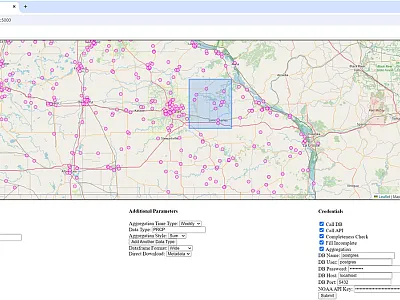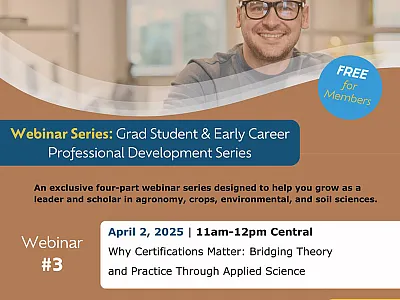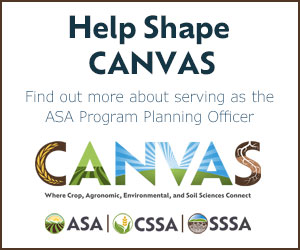CSSA Values Its Early Career Members
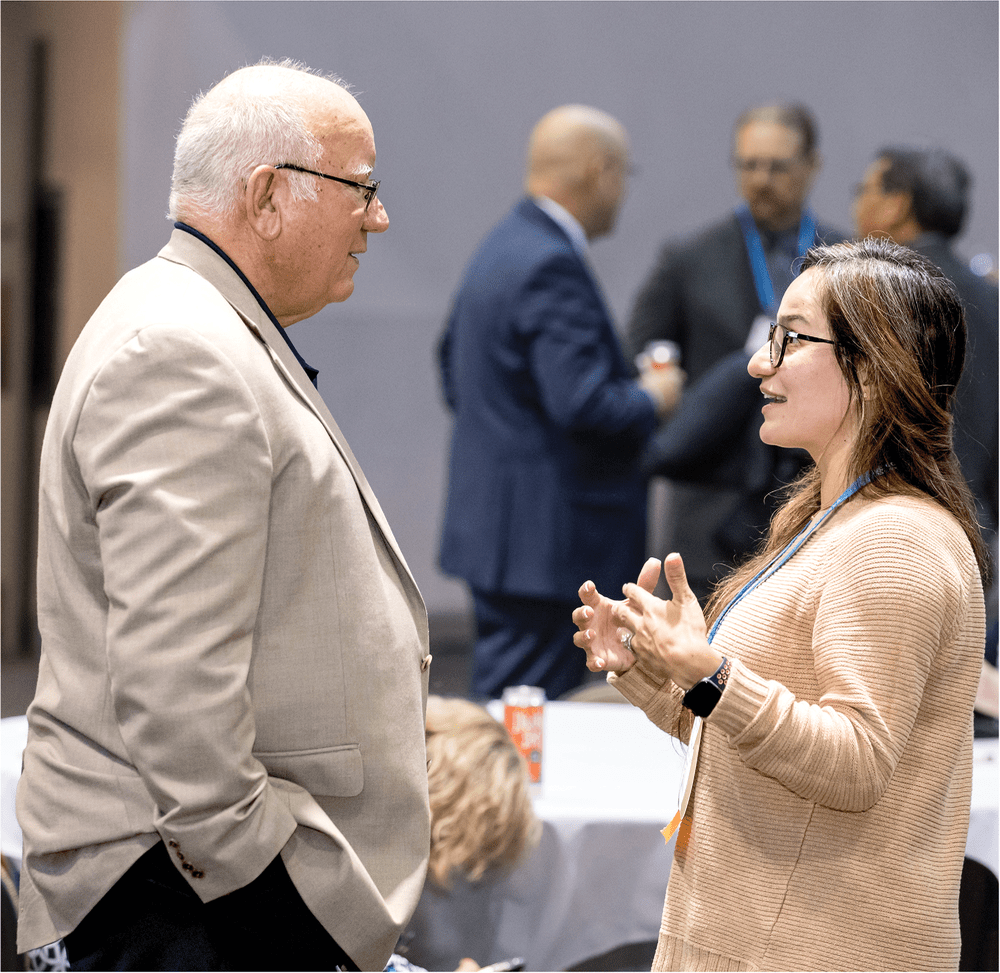
Early career researchers have always been critical to the success of the Crop Science Society of America (CSSA) and its sister Societies. Among professional societies, definitions of early career members vary. I like the definition of the American Society of Plant Biology: “those who self‐identify as early career and are currently going through graduate school or graduated within 10 years of any plant‐science (or related) degree.” This fits our definition although our current practice is to have separate committees for graduate students and for early career members (within 10 years of degree) who often work together.
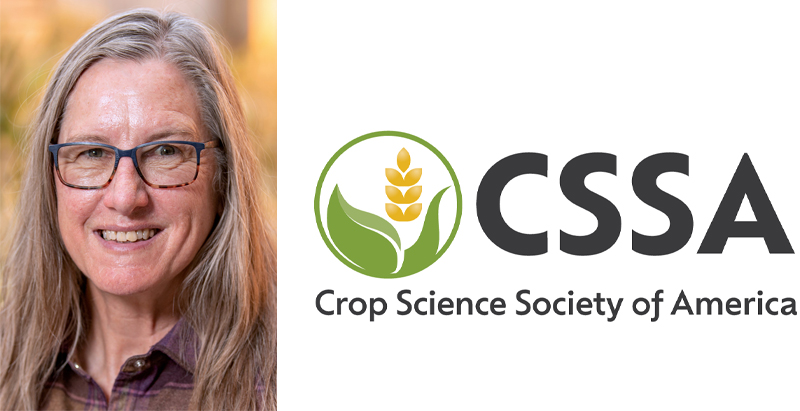
Early career members of professional societies tend to be more diverse in terms of race, gender, and professional goals than senior members. Early career researchers, including graduate students, postdocs, and other early career scientists, conduct much of the hands‐on research in science while senior scientists are occupied with student advising, grant writing, and administrative activities. Early career researchers and graduate students also conduct much of the teaching in undergraduate programs (summarized from Bankston et al., 2020).
While many professional scientific societies are experiencing decreased recruitment and retention of early career members, CSSA is holding steady. However, to meet the needs of our early career and graduate members and to gain from their insight, we need to do more.
It is often argued that early career members don’t have time for these professional society activities due to the pressures of the tenure process, teaching, family, or establishing oneself in a career. This argument is weak, however, because mid‐ and senior‐career scientists often are also juggling research with administrative responsibilities, personnel management, large diverse projects to manage, and additional family responsibilities. It should be noted as well that we have worked to accommodate diversity and family needs at the Annual Meeting through programming, facilities, and services and are open to additional suggestions.
How Do Early Career Members Benefit from Society Membership?
Early career scientists report positive outcomes from professional society membership, including leadership experience, creating programming in their topic areas at society meetings, creating webinars, developing networks, and improving grantsmanship and writing skills. In fact, when done well, societies offer professional development and networking opportunities that assist early career scientists in their professional goals.
Leadership positions for early career scientists in professional societies include membership on graduate and early career committees; program planning, editorial boards, and mentoring committees; and boards of directors.
CSSA has a Graduate Student Committee, a Graduate School Workshop Committee specific to the Annual Meeting, and an Early Career Members Committee. The CSSA Board of Directors is represented by a member of the Graduate Student Committee. The CSSA board does not have a separate early career member representative, but SSSA and ASA do. The Early Career Members and Graduate Student Committees work together to plan events at the Annual Meeting. The Women in Science Committee and the Diversity, Equity, and Inclusion Committee have several early career members. CSSA is recruiting additional early career members to serve on its Science Policy Committee and to serve as mentors in our Golden Opportunity, Bridge Scholar, and Greenfield Scholar programs. The number of early career members on editorial boards varies by publication.
Providing Guidance on Diverse Career Paths
Many Ph.D. students are unsure of their future. We already offer an active Career Center, and we have a greater role to play here as well. Graduate students want information on diverse career paths as they increasingly seek professional positions in non‐academic careers. Many career opportunities are in industry, some are entrepreneurial, and some are with government. A science degree can carry a person to a career in research, or that same degree can be valuable in law, sales, science policy, data science, science communication, outreach, biotech, publishing, and more. With our diverse membership, we can offer more mentoring and training into diverse career paths than can individual academic institutions. However, research supervisors, who are most often academic professors, often lack knowledge about what type of useful advice can be imparted to students for non‐academic careers. Perhaps we need a roundtable of early career members sharing information about fellowship and internship opportunities, transferable skills, and the best and worst advice they have received. Workshops, webinars, and articles about these opportunities will be of value to our early career members and their mentors.
Too often, Society membership is perceived as beneficial only for academic career paths. Societies offer opportunities for interactions across early‐, mid‐, and senior‐career stages; across subdisciplines; and across institutions and companies. Professional societies are one of the few places where academic, public‐sector, and private‐sector scientists can meet. We need healthy scientific societies to provide continuity, advance research, agree on (or debate) concepts and theories, and endorse scientific policy positions.
Major benefits of early career members to societies include updating our outreach efforts, developing new content, promoting interactions between senior and early career scientists, recruiting and mentoring future leaders, and bringing new ideas, enthusiasm, and energy.
CSSA (and SSSA and ASA) value our early career members. We value additional feedback. What are the barriers to membership and participation in the Society? What type of training is most helpful? What are the best methods of communication? What professional development sessions and webinar topics are of interest? Let us know your thoughts by contacting me (kim.garland-campbell@usda.gov), a staff member, or the leadership of the Graduate Student and Early Career Member Committees.
Additional Resources
Bankston, A., Davis, S.M., Moore, E., Niziolek, C.A., & Boudreau, V. (2020). Why scientific societies should involve more early‐career researchers. eLife, 9, e60829. https://doi.org/10.7554/eLife.60829 Theodosiou, N.A., Choi, Y., Freeman, E.A. (2020). Professional societies can play a vital role in career development. Developmental Biology, 459, 5–8. https://doi.org/10.1016/j.ydbio.2019.10.038
Text © . The authors. CC BY-NC-ND 4.0. Except where otherwise noted, images are subject to copyright. Any reuse without express permission from the copyright owner is prohibited.




